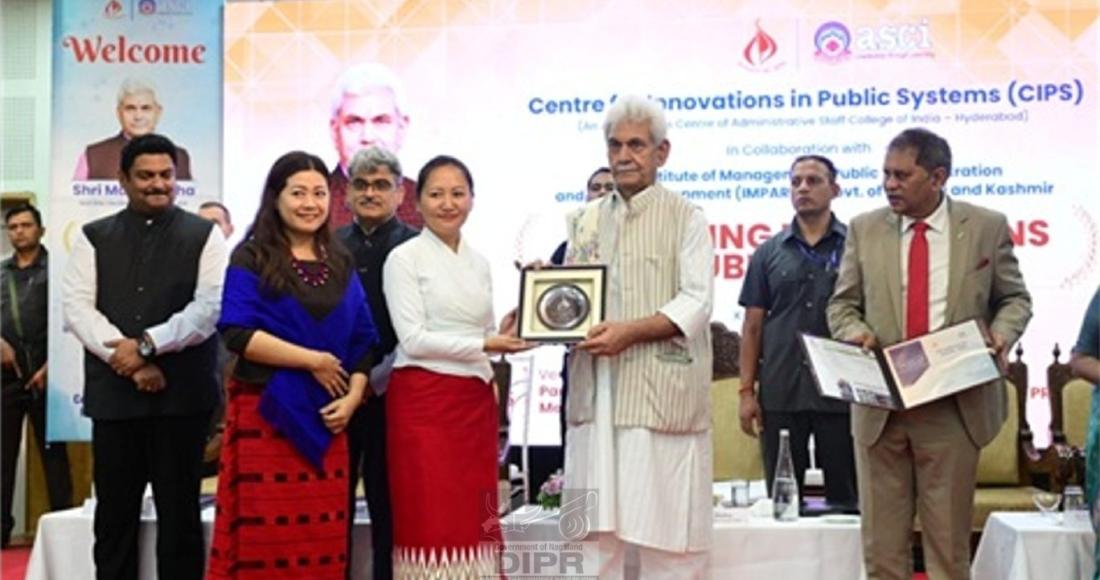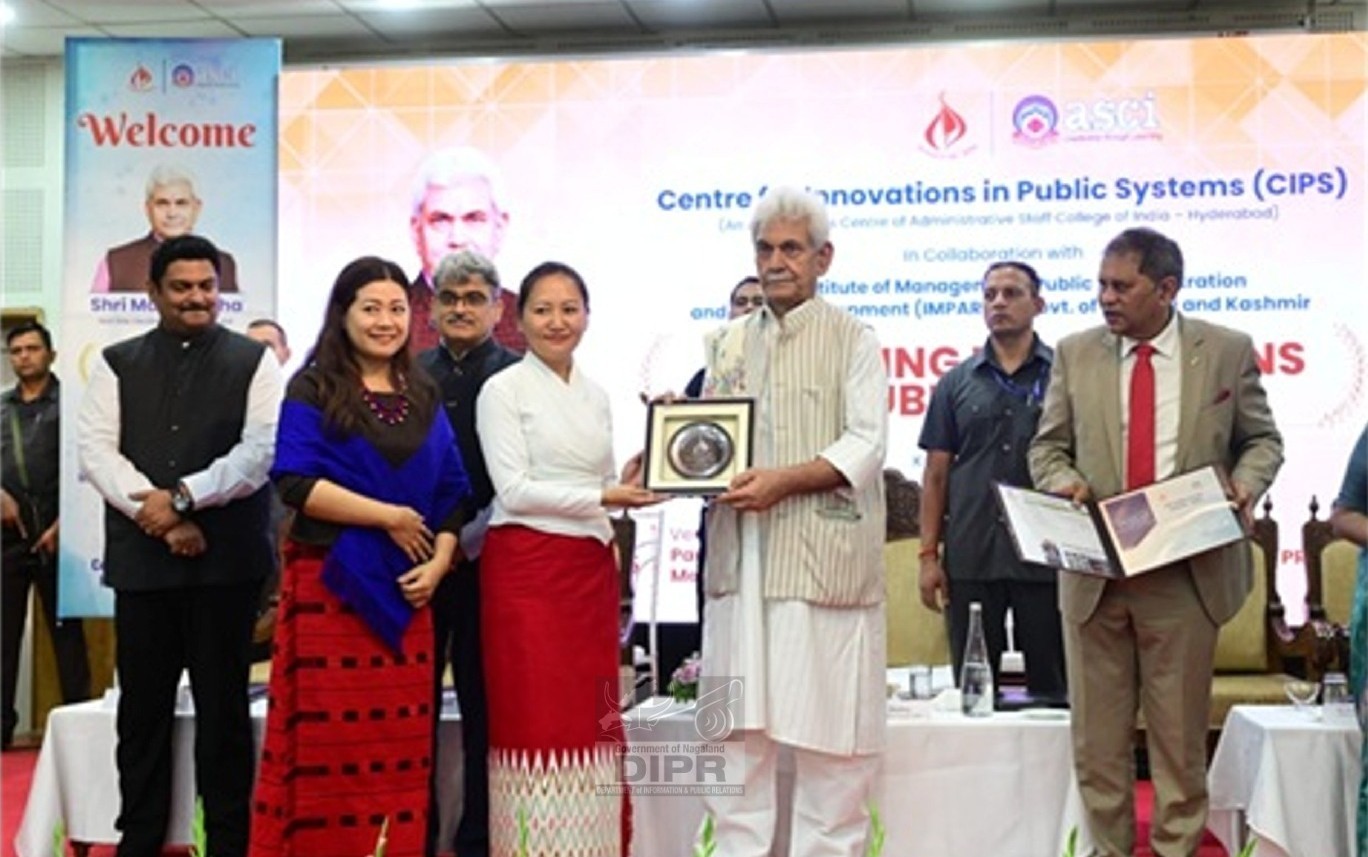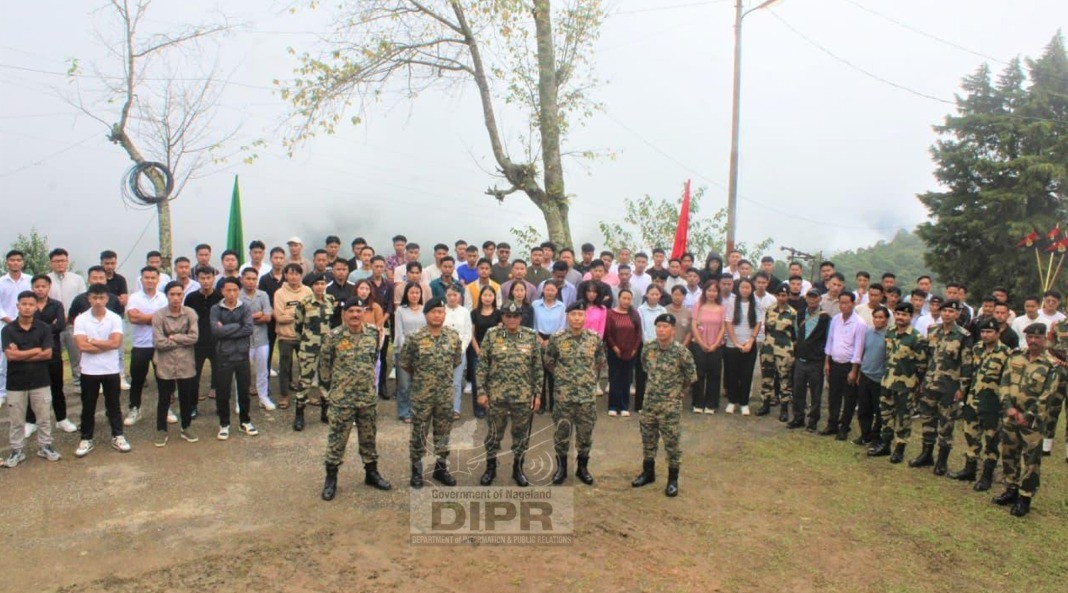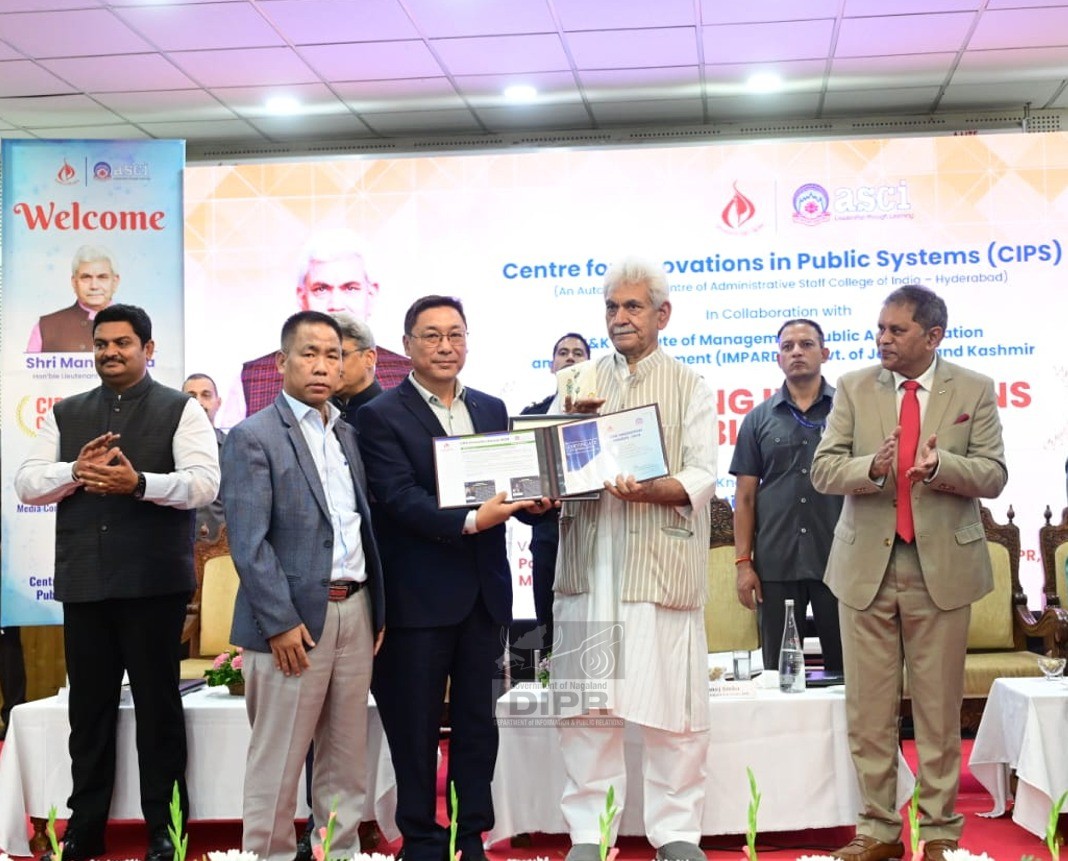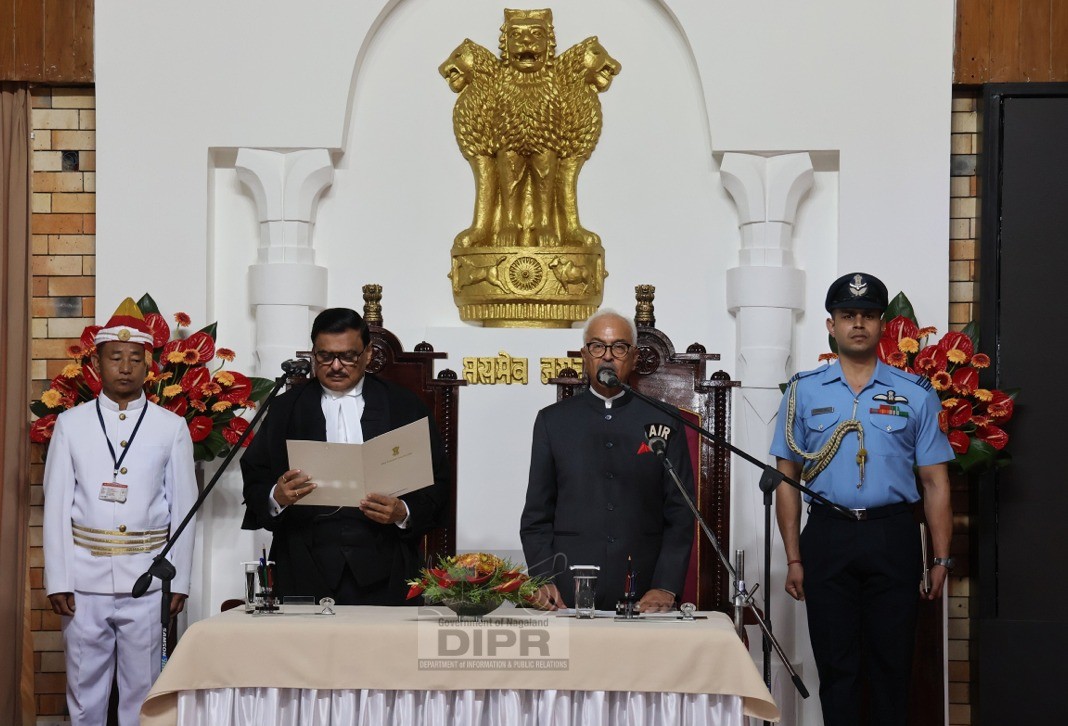As announced by the Centre for Innovations in Public Systems in April 2025, the Performance Incentive Grants (PIG), a programme of the NECTAR project under the Department of School Education, has been awarded the ‘CIPS Innovation Award - 2024’ in the education sector. CIPS received 226 applications from all over India, out of which 83 were shortlisted, and 34 projects underwent spot studies; finally, 21 projects across various sectors received the awards.
The award was accepted by the NECTAR team led by Avelu Ruho (NCS), Joint Secretary of School Education & Deputy Project Director of NECTAR, during the ‘CIPS Awards Ceremony – 2024’ held at the Directorate of Information, Srinagar, on 22 August 2025.
During the felicitation, the Chief Guest, Manoj Sinha, Lieutenant Governor of Jammu and Kashmir stressed that “people’s voice must be the soul of government policy” and that policymaking should be grounded in their needs and participation. He also stated that a file is not merely a piece of paper but is vital for the lives and future of citizens. Thus, the value of any action is determined by its ability to improve their lives. He emphasised that we must consider these two factors for a more responsible and responsive governance system.
Guest of Honour, Atal Dulloo (IAS), Chief Secretary of Jammu and Kashmir, in his address stated that it takes courage to innovate, and innovations should make lives simpler. He also said that bureaucratic innovations can accomplish in a few years what legislative practices cannot accomplish in decades.
The awarding body, Centre for Innovations in Public Systems (CIPS), Hyderabad, is an autonomous centre of the Administrative Staff College of India, established by the Government of India. As a national body, the mission of CIPS is “to help create and nurture a climate for accelerating and diffusing innovations in public systems”. To achieve this mission, CIPS honours the best innovative practices by scouting and fostering new innovations that will bring about positive changes in the culture as well as the structure of governance across states.
A total of 1,914 government schools in Nagaland have availed of the Performance Incentive Grants amounting to INR 86.13 cr. This has significantly enhanced the capacities of School Management Committees (SMCs) and School Management and Development Committees (SMDCs) across the state. The PIG funding model promotes needs-based planning with a bottom-up approach, allowing decision-making by the people closest to seeing, feeling, and understanding the needs of the schools. The flexibility in fund utilisation has enabled schools to tailor spending to their specific needs while fostering community engagement and improving the learning environment. This programme has reinforced the role of community as guardians of public institutions.
The Department of School Education extends its appreciation and gratitude to the District Administration, SMCs, SMDCs, and community leaders for their cooperation, active participation, and inputs as they have been instrumental in driving the progress.
(DIPR)


